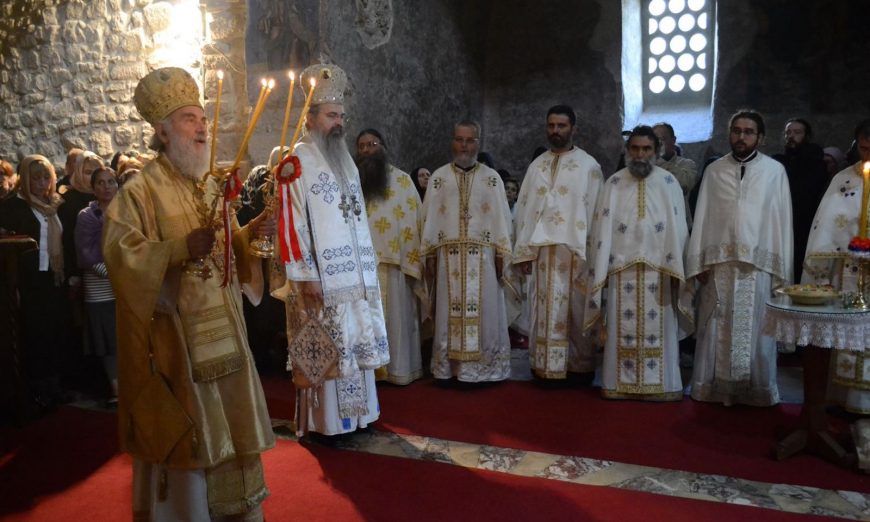Saturday, September 22, 2007, Turkish Daily News
Orhan Kemal Cengiz
What would you prefer? Having a weakened but determined enemy or a prosperous friend and strong ally? If you are a win-win oriented person, you would naturally opt for the later. However, Turkey is sometimes unreasonable and, against all odds, continues to have some peculiar policies. I believe some Turkish policies are operated on automatic pilot, that no one knows the reason why we go one direction instead of the other one and no one dares suggest a change of direction. I have never heard, for example, any reasonable explanation justifying current Turkish policy regarding the Ecumenical Patriarchate. Let us forget about human rights concerns or the freedom of religion and so on and just look at the matter from a purely strategic point of view. Is there any reasonable explanation why Turkey should continue its policy of pushing the patriarchate out of Turkey by constantly harassing it?
Turkey’s current policy will eventually lead to the total extinction of the patriarchate as an institution in Turkey because the Greek community will not be able to elect the next patriarch given the current restrictions and rules. What is Turkey’s interest in this? How can Turkey, which is supposedly struggling to get into the European Union, expect any benefit from such policies? I believe some policies in Turkey are basically governed by deep-rooted fears and we do not dare touch them. This psychologyrequires an in-depth analysis but the purpose of this article is different. In this article, I would like to put forward some ideas on how Turkey’s ‘Ecumenical Patriarchate problem’ could be solved or at least how the first step could be taken in that direction.
From this introduction, as you have already observed, I do not expect to see any willingness or desire on the part of the Turkish government(s) to solve this problem. So the only option that remains is for the patriarchate itself to find a way to solve its problems. When we look at the problem from the patriarchate’s perspective, the picture is not bright either. Like all other minorities, the Orthodox community’s relations with the state and the outside world in Turkey are also governed by fear and ‘learned helplessness.’ You can see in Turkey that minorities only react if their very existence is threatened, that is, if the interference in question is extremely painful. As a result, for a long time we have been hearing only of the property problems of minorities as though these groups do not have any other problems.
We started to hear the Ecumenical Patriarchate issue because the very existence of the patriarchate is at stake. The unwritten agreement between the Orthodox community and the state is about to be broken. According to this unwritten agreement, the minority group will not complain about anything and in return the state will not threaten its very foundations, though it will also never give it any substantial rights and will also take away some rights and privileges as time goes by.
The paradox
Minority groups in Turkey assume this position of ‘learned helplessness’ and they always think that one day ‘the state’ will give them some rights if only they wait patiently. For example, if you look at the way these groups use legal remedies, you will clearly observe that they only take recourse of the available domestic remedies when they are pushed into a corner. Their usage of remedies or lobbying activities is governed only by their ‘reactionary’ attitude. When I say reactionary, I mean only in a passive way with no protest whatsoever. Not only for the Orthodox community, but also for all other minority groups, the solution starts with a shift from this attitude and mentality. Namely they should assume a proactive position and actively seek their rights instead of waiting for ‘Godot,’ who will never come.
Last week I tried to explain why the Court of Appeal’s decision, declaring that the Patriarchate is not ecumenical, cannot be taken before the European Court of Human Rights (ECHR). But I also added that the ECHR remains the only option for solving the Patriarchate’s problems. So there is a kind of paradox here: There is one solution but it cannot be reached.
Let me explain first why I see the ECHR as the only solution for this problem. Even if the government would like to solve this problem, without having outside ‘help’ they cannot do anything because the Patriarchate issue is one of the ‘untouchable’ problems of Turkey. But a ruling from the ECHR would be a perfect excuse for any government to solve this problem. No power could have stopped the execution of Abdullah Öcalan, no power could have forced Turkey to pay compensation to a Greek Cypriot, yet the European Court did.
So the question of how the Patriarchate can bring its case to the ECHR is the core issue here. I will try to answer this question in my next article.
http://www.turkishdailynews.com.tr/article.php?enewsid=84088

